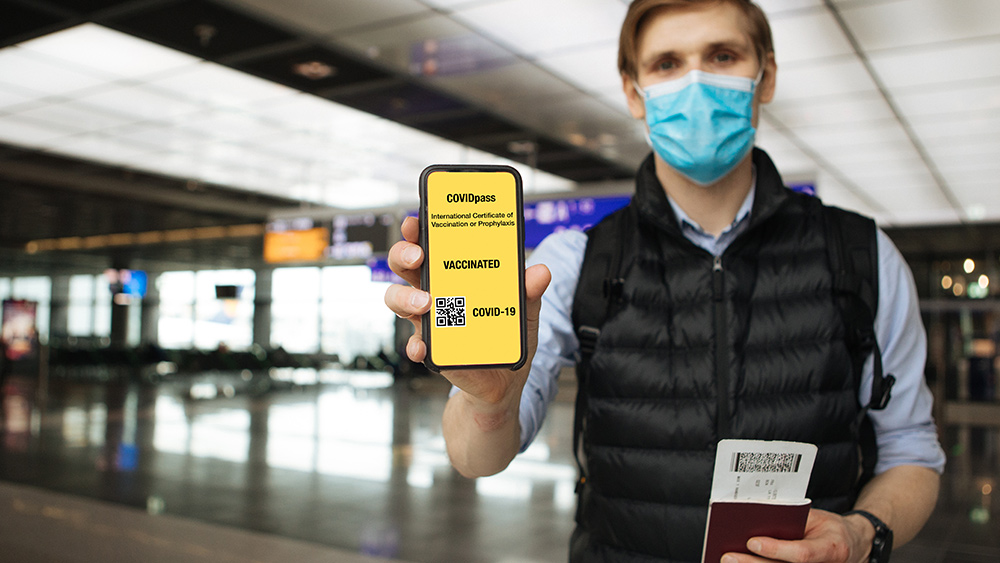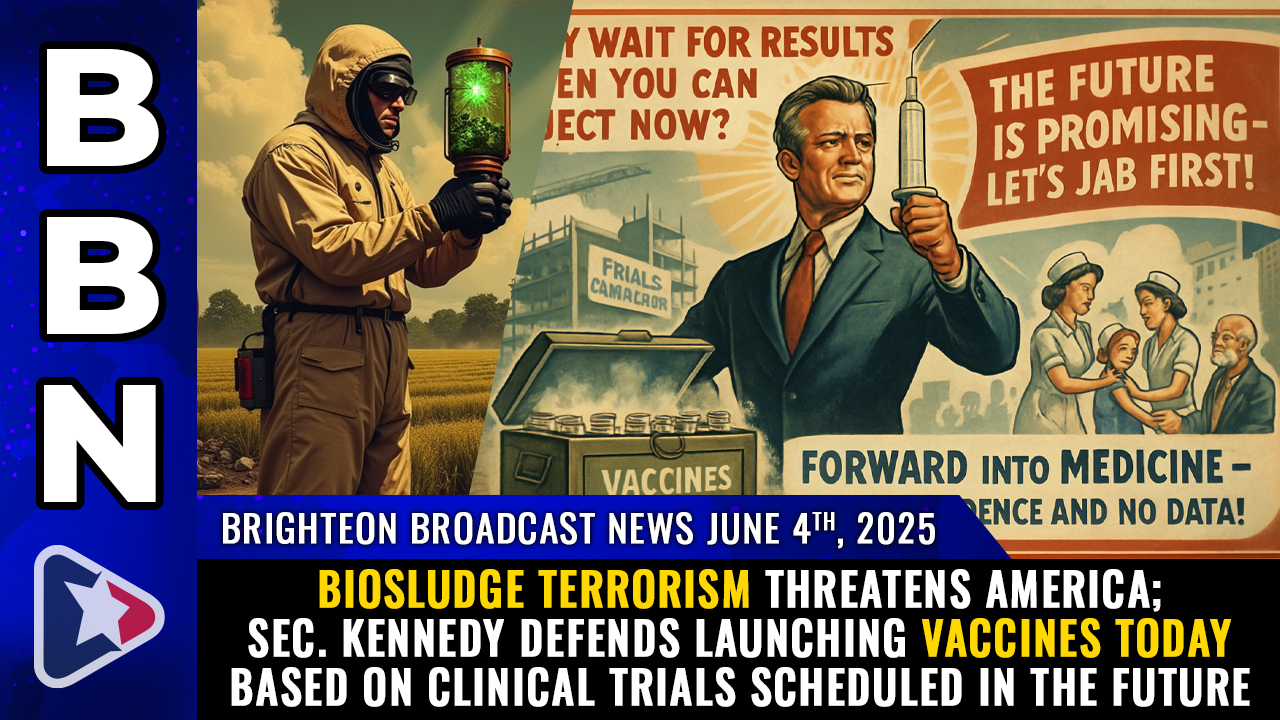“The Politics of Cancer Revisited”: A call to action for environmental health reform
06/02/2025 / By Belle Carter

- Dr. Epstein’s “The Politics of Cancer Revisited” (1978) challenged the focus on individual lifestyle choices as primary cancer causes, highlighting instead industrial pollutants and environmental hazards (e.g., asbestos, vinyl chloride) as key culprits behind rising cancer rates.
- The book exposed U.S. corporations’ deliberate suppression of health risks, spurring landmark environmental laws like the Clean Air Act, Clean Water Act and Toxic Substances Control Act, which criminalized data withholding and empowered public health protections.
- Epstein condemned institutions like the National Cancer Institute for prioritizing costly treatments over prevention, arguing this approach fails to reduce cancer mortality despite 70–90 percent of cases being linked to environmental toxins in air, water, food and workplaces.
- Data across states like New Jersey revealed stark ties between industrialized regions and elevated cancer rates, underscoring how corporate pollution and chemical exposure disproportionately harm communities.
- Epstein urged a societal paradigm shift, advocating aggressive environmental and workplace reforms to eliminate carcinogens, emphasizing that cancer prevention, not just cure, is achievable through collective political and legislative action.
In the early 1970s, as the Environmental Protection Agency (EPA) was being established, a small but influential group of Congress members, including Dr. Samuel S. Epstein, recognized the looming environmental threats posed by the industrial age. Their concerns were underscored by disasters like Love Canal and Times Beach, Missouri, which exposed the pervasive dangers lurking in our air, water and consumer products.
It was during this critical period that Dr. Epstein penned his seminal work, “The Politics of Cancer Revisited,” a book that would ignite a national conversation on public health and environmental policy. Published in 1978, “The Politics of Cancer Revisited” was a bombshell that demystified the complex scientific data surrounding carcinogens such as asbestos, vinyl chloride and benzene.
Dr. Epstein’s work was groundbreaking not only for its scientific rigor but also for its ability to connect these findings to the political and social currents of the time. The book documented alarming evidence of U.S. corporations deliberately withholding information about public health dangers from both Congress and the public, a revelation that sparked widespread outrage and led to new legislation criminalizing the withholding of vital health and safety data.
Dr. Epstein’s work served as a wake-up call, urging lawmakers and citizens alike to reclaim their fundamental right to a safe environment. It became a crucial resource for Congress as they fought for landmark environmental laws in the 1980s, including the Clean Air Act, the Clean Water Act, the Toxic Substances Control Act and the Resource Conservation and Recovery Act.
Fast forward to the year 2000 and the landscape of public health had shifted dramatically. Cancer was on track to become the nation’s number one killer, claiming over 500,000 lives and costing over $110 billion annually. The word “cancer” evoked a sense of crisis and panic, yet there was a palpable paralysis in our institutional response to this growing threat.
Dr. Epstein argued that the “Cancer Establishment,” including the National Cancer Institute and the American Cancer Society, had largely ignored cancer prevention, focusing instead on treatment. Despite the common-sense proposition that preventing exposure to carcinogens is crucial, these institutions prioritized treatment over prevention, a strategy that Dr. Epstein contends has failed to materially improve cancer survival rates.
Dr. Epstein’s research, including the concept of “Cancer Maps,” reveals a strong association between industrialization and excess cancer mortality rates. For instance, states like New Jersey, with their high concentration of petrochemical industries, have significantly higher cancer rates compared to less industrialized states. He cites epidemiological studies concluding that 70 to 90 percent of all cancers are caused by environmental factors, including background and man-made radiation and industrial chemical carcinogens contaminating our air, water, food and workplaces.
The book also delves into the resistance of the “Cancer Establishment” to acknowledging environmental causes of cancer. This resistance, often driven by fears that it would divert funding from other research efforts, has led to significant delays in addressing these critical issues. Dr. Epstein’s work challenges this status quo, advocating for a paradigm shift towards prevention.
Dr. Epstein calls for a comprehensive national program to prevent exposure to poisons, emphasizing that no solution will be effective without it. He argues that preventing cancer is within our grasp and we must not neglect this truth in our pursuit of a cure. The book is a clarion call to action, urging readers to heed the evidence and take the necessary steps to prevent cancer. It serves as a reminder that the politics of cancer is not just about science; it’s about the choices we make as a society.
“The Politics of Cancer Revisited” is more than just a book; it’s a manifesto for a healthier world. It’s a reminder that the fight against cancer is not just a scientific endeavor but a political and social one as well. By understanding the politics of cancer, we can empower ourselves to make informed choices and advocate for policies that protect our health and environment.
Learn more about Dr. Samuel S. Epstein’s book “The Politics of Cancer Revisited” in this video.
This video is from the BrightLearn channel on Brighteon.com.
Sources include:
Submit a correction >>
Tagged Under:
big government, cancer, cancer cures, carcinogens, chemicals, clean air, clean food, clean water, Ecology, environ, legislation, poisons, politics, research, toxins
This article may contain statements that reflect the opinion of the author





















